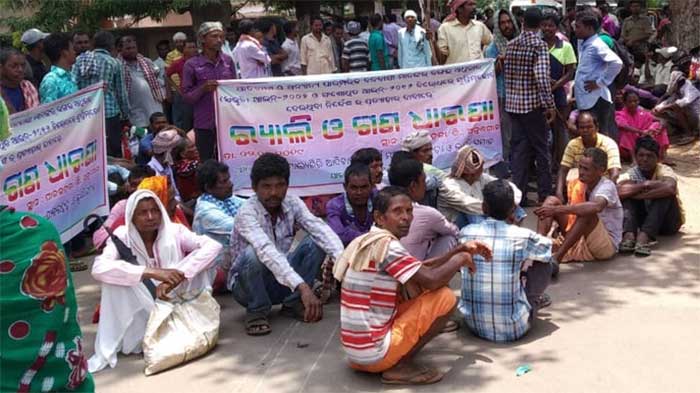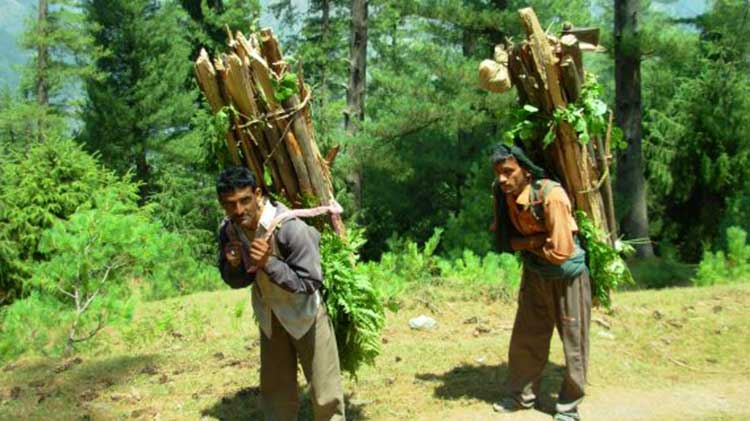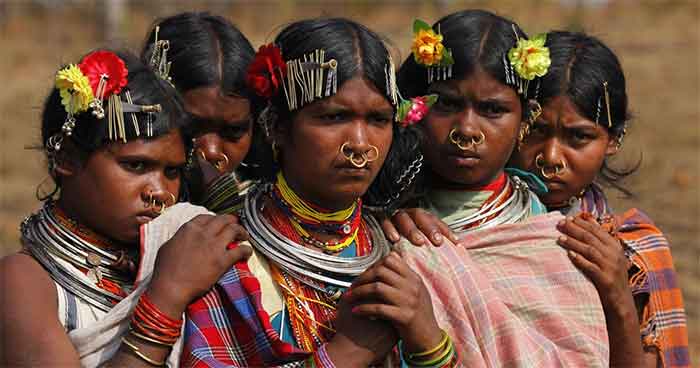
India is currently among the most affected countries by COVID19, recording 6 million cases, by the end of September 2020. The pandemic and lockdown measures have had a drastic impact on a large population of poor and marginalised forest communities, causing loss of livelihoods and employment, food insecurity and socio-economic distress. As per the findings of a preliminary assessment report, on the impact of COVID19 lockdown on Adivasi and Forest Dwelling communities, the vulnerabilities, atrocities and injustices that forest communities face due to forest, conservation and economic policies increased many fold during the pandemic.
Despite these problems, there are examples of Adivasi and Other Traditional Forest Dwelling communities coping with the crisis with remarkable resilience, particularly in areas where their land and forest rights have been recognised and the Gram Sabhas have been empowered under The Scheduled Tribes and Other Traditional Forest Dwellers (Recognition of Forest Rights) Act 2006 (FRA) and Panchayat Extension to Scheduled Areas Act 1996 (PESA)- two landmark legislations securing the rights of Adivasis and forest dwelling communities over their lands and resources. Recognition of these rights in many cases has led to overcoming constraints and crises situations.
“Community Forest Rights and the Pandemic: Gram SabhasLead The Way”, a report released on the occasion of 2 October, Gandhi Jayanti, is an attempt to highlight exemplary initiatives of legally empowered forest communities to cope with the pandemic and widespread distress. The report is published by team of independent researchers as part of CFR Learning and Advocacy and Vikalp Sangam initiative.
The case studies in this report illustrate how the recognition of forest rights to use and manage community forests under the FRAhas made it possible for many Adivasi and forest dwelling communities to overcome the distress and swing into action to address the situation created by the COVID pandemic and the lock down.
An important lesson presented by the document is that the local communities and Gram Sabhas better understand the local complexities than the local administrations while dealing with a crisis situation as presented by COVID 19, and respond faster especially when empowered by FRA. This was illustrated in the case study about the Gram sabhas in Rajnandgaon, Chhattisgarh who initiated a holistic COVID19 governance plan, while local administrations followed later on. Furthermore, the document narrates how secure tenure and empowered Gram Sabhas can help reduce distress out migration, as evident in Nandurbar district where Pratibha Shinde, member of Lok SamanvayPratisthan, CSO shared “Until 2016, a lot of people used to migrate out of Nandurbar district for work. Workers would go for six months as laborers to work in agricultural fields, however ever since getting CFR recognition, that has stopped. During the COVID19 lockdown, the villages had livelihood: in collection of forest produce, tree plantation through MGNREGA and building ponds and water harvesting for irrigation and other purposes through the CFRMCs.”
The lockdown coincided with a major season for Minor Forest Produce Collection. The case studies showed that ownership rights over forest produce ensured better and timely livelihood opportunities even during the lockdown. In Gondia, Maharashtra, close to fifty Gram Sabhas are organised as a Federation, who guaranteed competitive prices and bonus for the communities for their MFP collection even during a crisis. The Federation of 29 villages earned INR 2.5 crores by selling Tendupatta, while managing everything themselves and taking precautions against the spread of COVID19. In Chamarajnagar, Karnataka as well, Soliga Adivasi communities survived the lockdown due to their collections of honey and tubers, which as they have their rights legally recognised, they could carry out.
Another lesson from this document is thatlocal knowledge and long term conservation efforts led by local people creates healthy and diverse ecosystems which makes communities more resilient. In Nayagarh, Odisha, Adivasi Kondh communities were consuming diverse forest foods during the lockdown as they have been regenerating their natural forests for over four decades now. In Dhule, Maharashtra, communities had saved up food grains and vegetables, as they have been practicing self-sufficient agriculture as a way of long term cluster development for many years now since their Community Forest Rights were legally recognised. Furthermore, in Kutch, Gujarat, local knowledge of water systems, grasses and soils allowed Maldhari pastoralists and the hundred thousand cattle species to survive and thrive during the lockdown which coincided with a dry period.
Furthermore, when local institutions, such as the Gram Sabha, were empowered, women played a key role in managing the crisis, and other vulnerable communities such as returning migrant workers, pastoralists and Particularly Vulnerable Tribal Groups (PVTGs) were attended to. In Dindori, Madhya Pradesh, women organised a system of food distribution and water collection that made sure that physical distance was maintained in the Baiga PVTG villages. In Narmada, Gujarat, Gram Sabhas ensured that Govaliya nomadic communities received foods. As Trupti Mehta of ARCH-Vahini CSO shared, “ “Till now, communities had chartered their ways through difficult terrain, but this crisis? Nobody had ever imagined that communities would have to face the situation that was totally beyond their imagination, and control—Covid-19 pandemic in 2020!Yet this was the first time when the Gram Sabhas were actively involved, in fact, were entrusted in the management and protection of the forest resources. The main challenge remains that they carry out their processes in a democratic and transparent way and continue the forest management and protection work.”
The case studies present examples which lead us to an understanding that community empowerment, particularly by ensuring tenure security and devolving natural resource governance and management power, can restore ecosystems, create sustainable economies and community resilience to cope with the natural and human induced calamities such as the COVID19 pandemic. On the occasion of Gandhi Jayanti, this report narrates how empowering local self-governance through the Gram Sabhas in Adivasi areas is the first step in undoing historical injustices, and towards strengthening grassroots democracy and effective natural resource management. While there have also been detrimental steps taken during the COVID19 lockdown, which aim towards environmental law amendments and forest land diversions, thereby diluting the power of Gram Sabhas, this report highlights how the governance of Gram Sabhas is central for managing both natural and human made crises.
Here is a video that may interest all of you about the report: https://www.youtube.com/watch?v=Ao_TUkt3AIk&feature=youtu.be
https://www.fra.org.in/document/CFR%20and%20the%20Pandemic_GS%20Lead%20the%20Way-Vol.2_Oct.2020.pdf
SIGN UP FOR COUNTERCURRENTS DAILY NEWSLETTER














































